About
Hi, My name is Claudio Iturra (CV). I am a Ph.D. Candidate in Oceanography at The University of Concepción, Concepcion, Chile. My interest lies broadly in the area of the physical oceanography (near-inertial motions, mixing, coastal ocean circulation and climate). I'm currently working on my thesis describing the sub-inertial and inertial circulation over the shallow shelf of Concepción, and the consequences of these motions in the water column in terms of mixing.
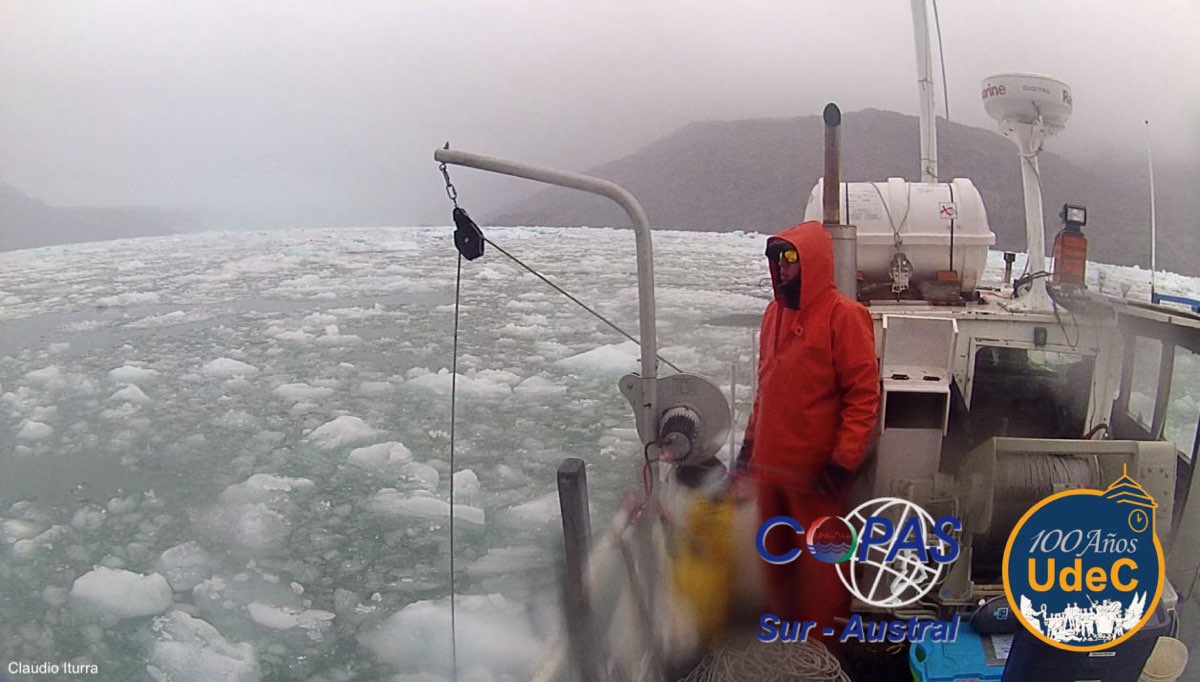
Measuring CTDO & Turbulence in the Fjord area close to the Jorge Montt Glacier, Patagonia, Chile.
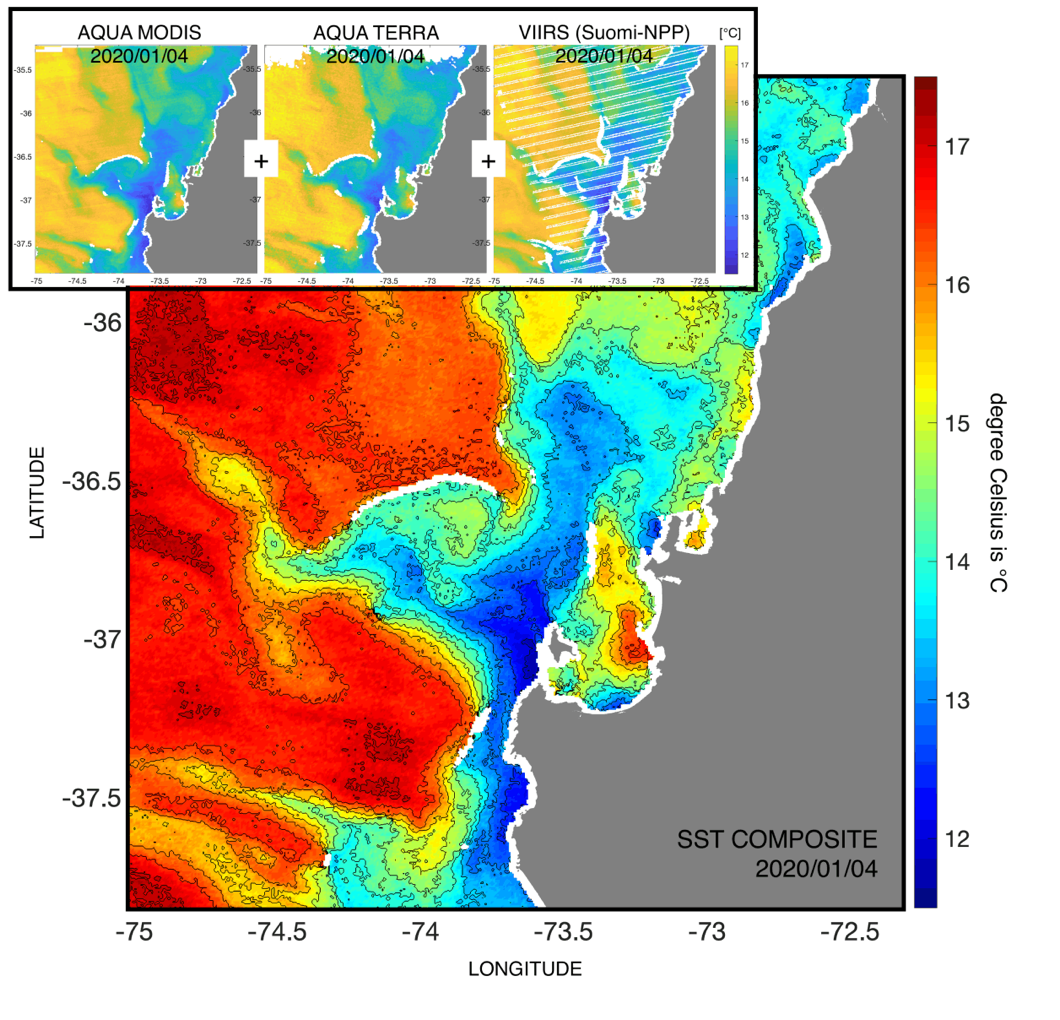
Research
The shallow shelf of Concepcion offers a unique and intriguing environment for the study of inertial and sub-inertial processes within the ocean. Located along the coastal region of Concepcion, this area exhibits complex dynamics driven by various factors, including tidal currents, wind patterns, and coastal geomorphology. Investigating the interactions between inertial and sub-inertial processes in this region provides valuable insights into the physical and biological dynamics of shallow shelf environments.

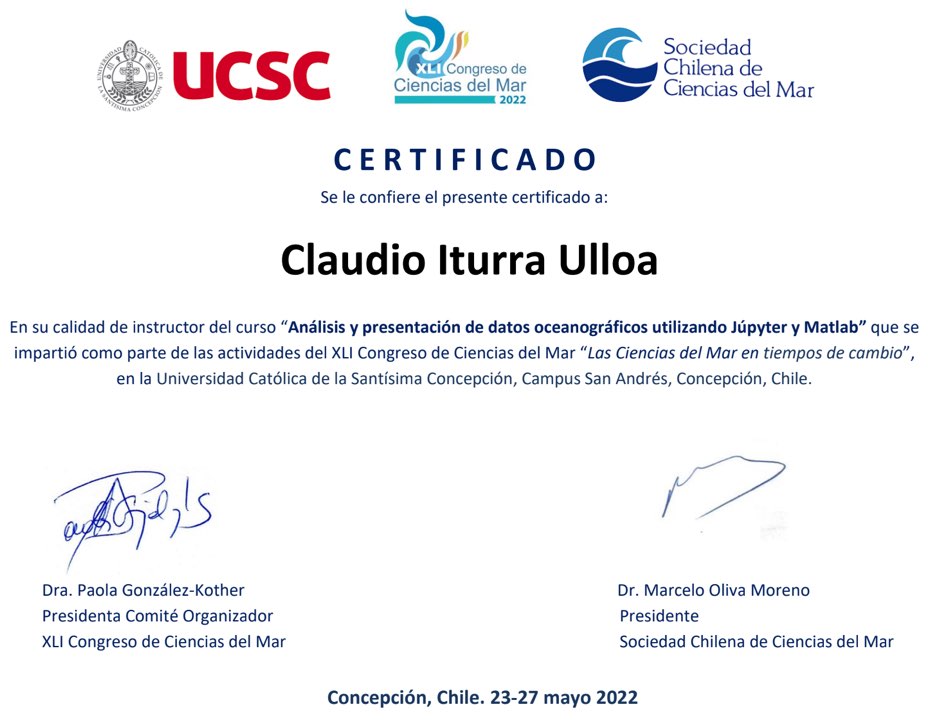
Projects
Welcome to this research update, where you will find the latest findings from my investigation focused on inertial and sub-inertial processes over the shallow shelf of Concepcion, located in the central and southern regions of Chile. Additionally, I am currently working with Level-2 high-resolution satellite data to understand the thermal structure variability over the southern Chile .
Classes
This repository contains courses on Data Analysis in Physical Oceanography that I have previously taught or am currently teaching at congresses, universities, institutes, and other activities. The course focuses on providing participants with the necessary skills and knowledge to effectively analyze and interpret oceanographic data. Through hands-on exercises and theoretical lessons, participants learn various data analysis techniques specific to the field of physical oceanography.
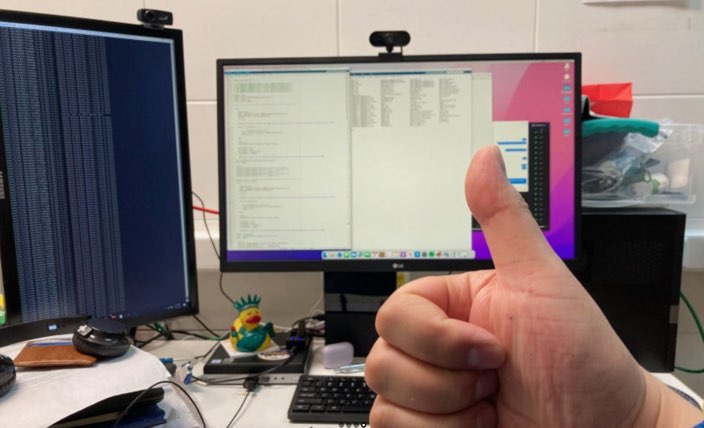
Codes
I employ Julia, Python, and MATLAB codes to process oceanographic data, simulate shallow ocean processes, and explore databases. These programming languages provide powerful tools for efficient data analysis and manipulation in the field of oceanography. With Julia's high-performance capabilities, Python's extensive scientific libraries, and MATLAB's versatile data processing functions, I am able to handle various tasks related to oceanographic research.
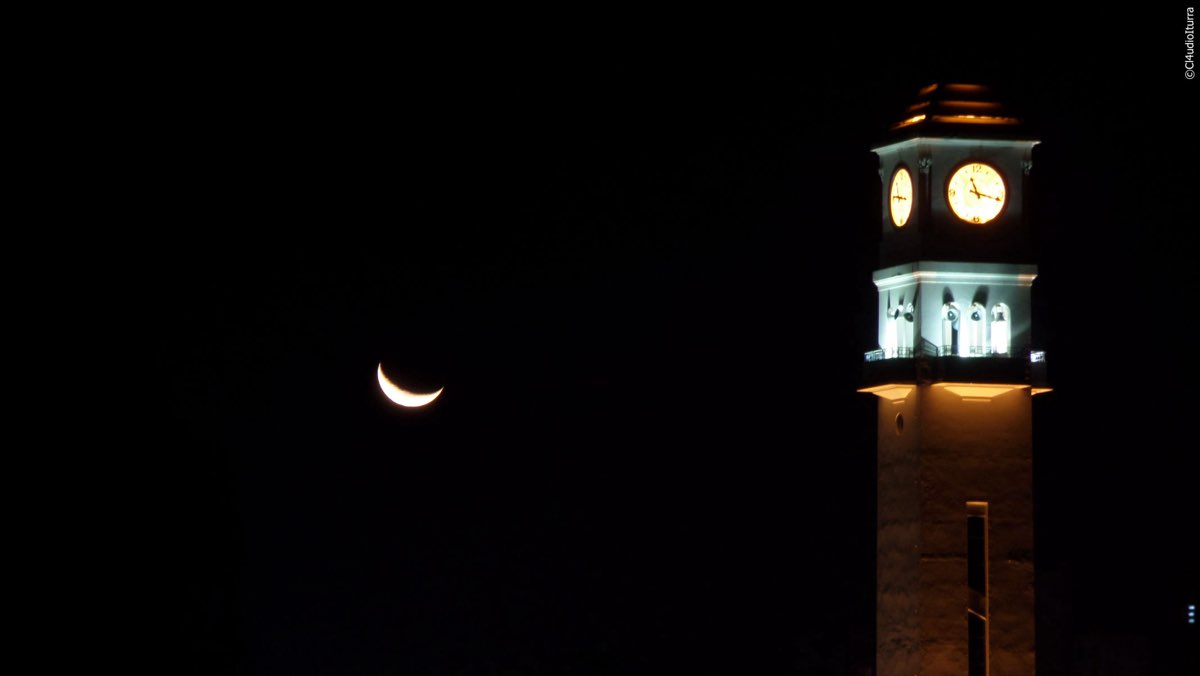
Campanil, Universidad de Concepción.